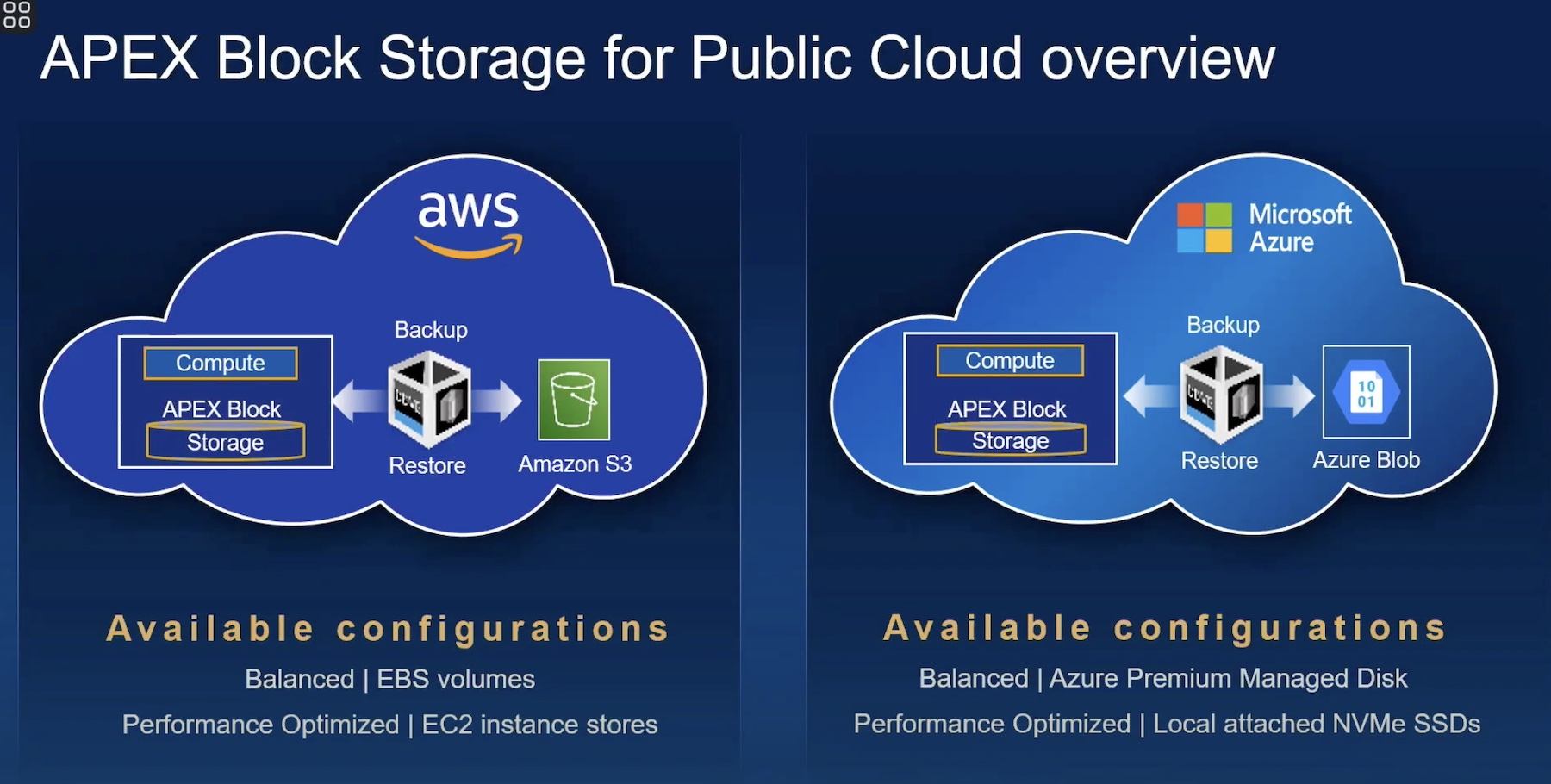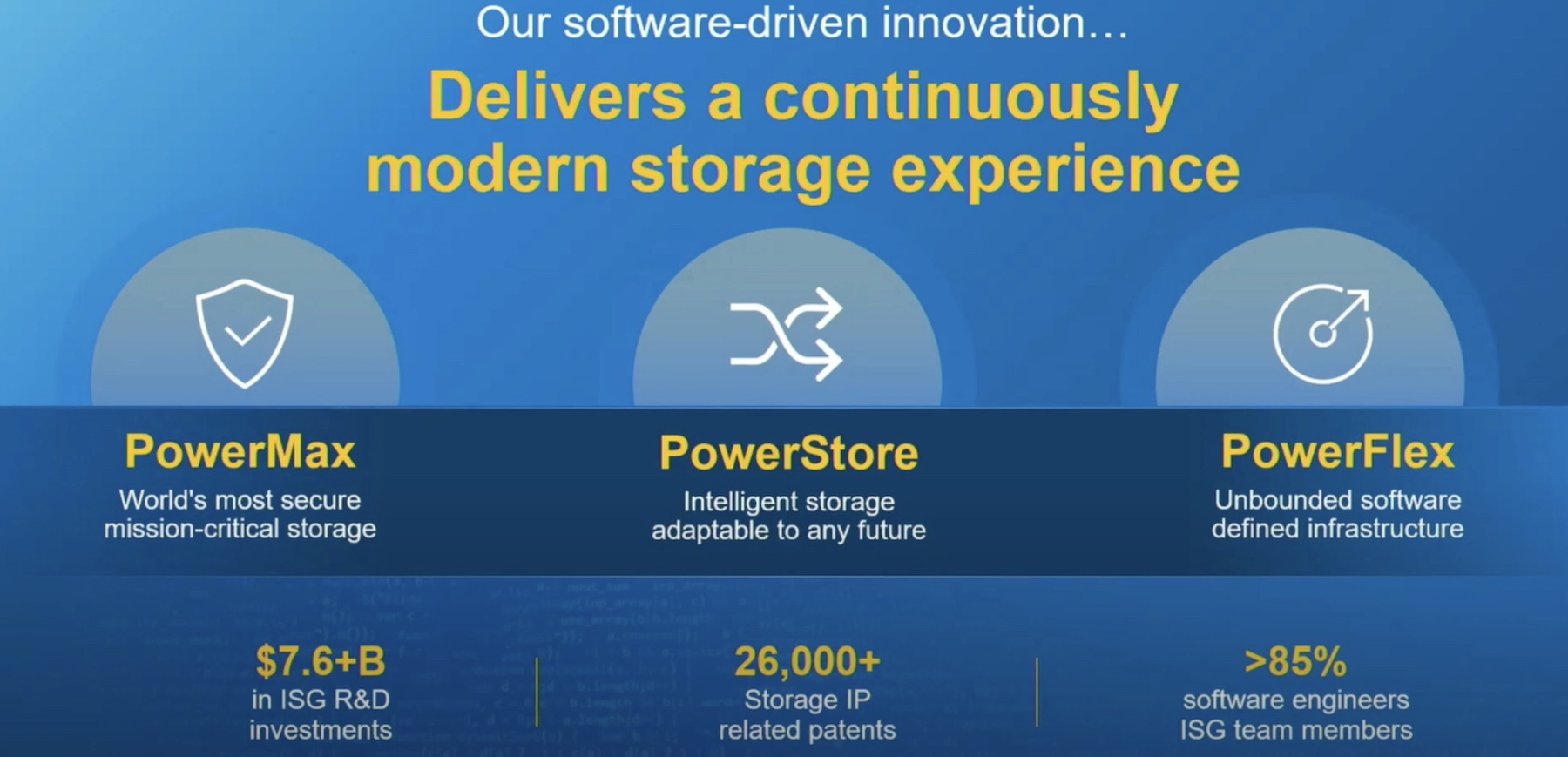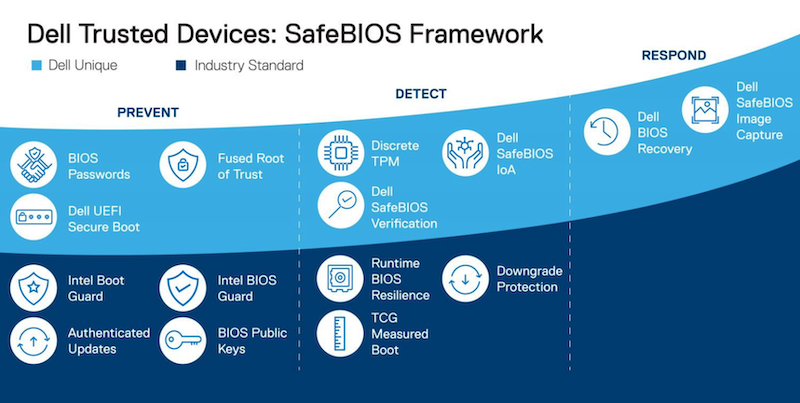For an enterprise using the public cloud platform, the easiest way to back up data, and share it with users is through cloud storage services. Just pick a suitable tier of storage, and pop the data in. Now, it is the vendor’s job to keep the data safe, shareable and available. But sticking your data in the rented digital cabinets of public cloud has big barriers, not the least of which are complexity and cost.
At the recent Cloud Field Day event in California, Dell Technologies presented the Dell APEX Block Storage for Public Cloud, a software-defined solution that provides a universal storage layer for the hybrid multi-cloud environment. APEX Block Storage packs the economic benefits and operational experience of on-prem and the agility and resiliency of that of the public cloud.
A Pricey Proposition
Public cloud has made it normal to pay for storage services under someone else’s management. It’s easier to add more capacity in the cloud, than buying and setting up servers on premises. You can scale back when you like without worrying about leaving equipment to collect dust in the datacenter floor.
The tricky part is keeping up with the cost and complexity as data expands. There is an overwhelming number of choices of storage in the public cloud ready to go with just a credit card, but the reality isn’t so simple.
Cost is one of the biggest surprises. Putting data in the public cloud also involves significant performance limitations. Every cloud has its own set of service level agreements (SLAs), and multi-cloud involves even more of those. The agreements are designed to fit specific business needs, which precludes high-performance, latency-sensitive applications. On-premises infrastructures handle these needs better.
This conundrum leaves businesses shuffling between on-premises and multiple cloud vendors in search of the right platform for the right set of applications.
Internal operations are heavily impacted as a result of the technical and management overheads associated with using multiple services. The platforms have separate functions and offerings, and it leaves teams to contend with sky-high technical inconsistencies and complexities when working together and doing handoffs. The heavy technical burden can take away from the productivity and speed of delivery.
Launching Storage from Private to Public Cloud with APEX Block Storage for Public Cloud

Dell APEX Block Storage for Public Cloud distills down the overwhelming number of options to one solution for multiple platforms. Dell pledges two things – reduced TCO and extreme performance.
“We are not competing with the hyperscalers. We are essentially working with them, and elevating the customer experience in their cloud journey,” said Kiruthika Gopal, Product Manager.
It is at the heart of Dell’s ground-to-cloud strategy which is to introduce the cloud consumption-based model without requiring the capital investment of on-premises. Based on Dell’s analysis, APEX Block Storage for Public Cloud offers up to 87% more cost-savings and 100 times better performance compared to native public cloud storage.
APEX Block Storage for Public Cloud is based on Dell PowerFlex, a software-defined block storage offering that is a customer favorite. “It’s has been around for over a decade and customers love it for the performance it offers, the scalability and extreme flexibility. We want to extend the same features and benefits for customers deploying in the public cloud,” she said.
The scale-out architecture of PowerFlex lends it elastic scalability and extreme performance. APEX Block Storage for Public Cloud supports node-by-node linear scaling of compute and storage. Users can go from a minimum of three to five nodes to up to 512 nodes.
Scaling can yield millions of IOPs per volume, and sub-milisecond latency required to support mission-critical workloads like Oracle, SQL, SAP Hana, and MongoDB. Such extreme performance enables users to address diverse use cases, including the ones that are not known good candidates for public cloud.
Customers often face loss of data access when cloud availability zones (AZs) go down. Dell APEX Storage for Public Cloud offers multi-AZ sharable storage that delivers improved resiliency through data distribution across multiple AZs. “Multi-AZ durability is something very unique. We give customers the option to deploy their entire storage cluster within a single availability zone or a multi availability zones.”
Choosing multi-AZs does not lead to buying extra capacity. APEX Block Storage spreads out data across AZs without data replication leveraging their fault sets to achieve maximum resilience. This extends the golden 6 9s availability enjoyed on-prem to the public cloud, while delivering Dell’s native data protection capabilities to cloud platforms.
Dell APEX Block Storage is a one-UI solution. The management interface used on-prem is available in the public cloud as well. This eliminates the need to build separate sets of APIs and tools when moving data between the platforms.
APEX Block Storage for Public Cloud is available for AWS and Azure. It comes in two flavors – Balanced and Performance-Optimized for general and mission-critical workloads.
Wrapping Up
The Dell APEX Block Storage for Public Cloud provides enterprises a way to do storage in the public cloud without going all in. A handy solution the combines the best-of-breed storage offerings across public and private clouds, it delivers a true consistent experience from ground to cloud.
For performance numbers and more, be sure to watch Dell’s presentations on APEX Block Storage for Public Cloud from the recent Cloud Field Day event.




